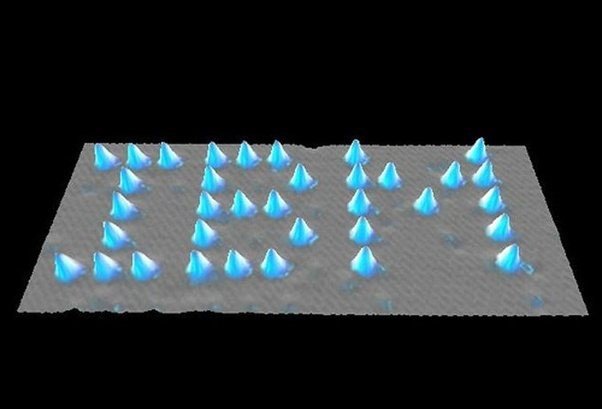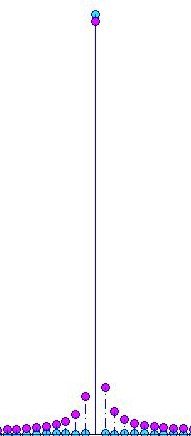
I recently came across a book called Breaking the Habit of Being Yourself by Dr. Joe Dispenza. I had to drop the book after a couple of chapters. It seems the entire basis for the book is based on a misunderstanding of Heisenberg’s Uncertainty Principle and the observer effect. I’m surely being picky here, and it’s likely the case that Dr. Dispenza has solid advice on how to break habits; it is my own ego that prevented me from reading further, not necessarily Dispenza.
But I would still like to clear the air here and explain how we should interpret Heisenberg’s Uncertainty Principle. Dr. Dispenza starts the book by explaining what he thinks the observer effect is. It has been theorized that an electron may be in every place at once, but then once observed, our very act of observing that electron fixes its position. Because of this, Dispenza seems to be under the impression that conscious minds have the ability to influence the objective universe as we view it. Mind over matter, basically. And he then proceeds to use this as a motivational tactic; “you have the power to change the world!”
No you don’t. Not like that at least.
Physicists use this term, observer effect, to describe the problem that humans have to see what they’re experimenting on, and visible light can influence those experiments. Light itself interacts with electrons, so to shine a light on an electron in hopes of measuring it will actually disturb it by changing its momentum. It’s not the act of seeing that changes the circumstances of particles, it’s the other variables that must be present in order for us to see.
Now Heisenberg’s Uncertainty Principle is a law of nature that seems to prohibits us from measuring the exact position of a wave particle, and simultaneously calculating its momentum. For thousands of years, western science has thought of the microscopic world as being made up of little balls of stuff, and most of us were brought up imagining them the same way. However, as we look closer, the more we’re beginning to realize that the eastern world had a better theory for the fundamental nature of the stuff around us. The world doesn’t seem to be made up of little balls that revolve around other little balls. It seems to behave more like vibrations in spacetime.

Much of the confusion in science comes from the failing of words, mostly because we’re still working out what the best definitions of those words should be. So when someone uses the word particle, don’t think of a little ball of stuff; this is now an outdated word that implies too many solid structural properties.
In the most basic sense, you can think of the uncertainty phenomenon as trying to nail Jello to a wall. A similar problem occurs when we try to measure the position of a sound wave. So tell me, where exactly is a sound wave located? Is it even possible to locate the position of a wave? In a sense, yes, we can estimate the greatest spike of that wave by cutting this wiggle into even smaller sub-wiggles, until we get the greatest spike of the wave in a single point in time. But now we’ve run into another problem. Since we’ve cut this wave into the smallest possible wiggle, we can no longer measure it’s frequency. Remember, the frequency of a wave is the amount of crests or troughs over a given period of time; since we’ve compressed the wave to a single point in time, it doesn’t really have a frequency. So this is like a position/frequency uncertainty principle for sound waves.

We haven’t totally cracked the explanation of Heisenberg’s principle here; the quantum world is more mysterious. But both of these uncertainty statements describe how much information we are ever able to extract from a quantum system. Here’s the best video I’ve come across on the subject. Thank you PBS Spacetime.
Heisenberg’s Uncertainty Principle basically says that we can never know both the position of a wave particle and its momentum. Here’s a video by Veritasium that shows the principle in action. He demonstrates the single-slit experiment, where a laser is pointed towards a slit. As you begin to narrow the slit, something strange begins to occur: the laser begins to widen on the other side of the slit. His explanation for why the world behaves this way is rather lacking.
“At a certain point, you come to this limit, so that if you narrow this [the slit; making the position more precise] any further, you are going to break this uncertainty relationship. So what needs to happen is the uncertainty of momentum needs to go up …to ensure that we don’t break Heisenberg’s Uncertainty Principle.”
I’m sure he’s a very intelligent guy in all other respects, (in fact I know so; I find myself watching his videos often), but explanations like this just confuse people. Instead of trying to insinuate that the math itself affects the behavior of particles, it’s better to simply say, we don’t know why the hell this is happening, but it’s happening.
We don’t know much when it comes to the why of quantum physics. We’re still working out the what part. Sometimes physicists don’t like to admit this, and may try to excuse their ignorance by saying things like, “2+2 can equal 5;” basically implying that we should ignore logic when dealing with quantum physics. It’s the perfect cop-out really; as soon as we find something that’s extremely hard to explain, we simply conclude that it can’t be explained at all. Throughout time, people have always discovered what they thought to be paradoxes, (a round Earth that people don’t fall off of, for instance), and these paradoxes were always debunked through logic as time went on. The same will happen to quantum physics eventually. Simply because we can’t explain it at the moment doesn’t mean we’ve finally found a paradox that can’t be explained; it just means we have more work to do.
But we do know something for sure, we don’t have telekinesis.
Hi! I am a robot. I just upvoted you! I found similar content that readers might be interested in:
https://hackernoon.com/heisenbergs-uncertainty-principle-doesn-t-mean-you-have-telekinesis-7868eb9bfc83